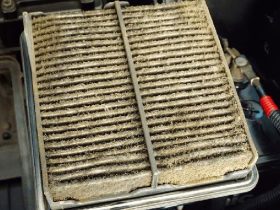In this day and age, the average car owner is woefully ignorant when it comes to the inner workings of their automobile. If you’d like to become more mechanically knowledgeable and be able to perform simple DIY repairs, getting up to speed isn’t that hard. If you do the following, you’ll be a gearhead in no time.
Research a New Topic Every Day
Pretty much everything you want to know about a car’s engine, braking system, and suspension can be found online and probably in your car’s manual. Sites like Wikipedia and How Stuff Works are great resources for general, and even highly specific information. Start with broad overviews of different systems and research a specific component in depth daily.
Take an Auto Technology Course
If you’d like to pursue a rigorous course of study, an online class is the way to go. The good news is, there are plenty of free courses on the web like Autoshop 101 from AutoEducation, which covers the basics and should give you a firm grounding in the fundamentals.
Work on Older, Simpler Vehicles
The complexity of modern automobiles scares off many car owners looking to learn about their machines. While they require more maintenance, older cars are generally easier to work on. If you don’t feel like buying a 1966 Mustang for tinkering purposes, places like Reggie’s Garage can have you practice on restoration projects.
Invest in Diagnostic Technology
Performing your own repairs is the best way to really understand how everything fits together. To do much beyond changing the oil, you’ll need an OBDII scanner and a few other gadgets for diagnosing engine problems. A spark tester for troubleshooting ignition issues is a cheap device that will pay for itself quickly as well.
Join a Model-Specific Web Forum
Every car or truck on the market is a little different and requires specific tools and procedures to repair or maintain. Nearly every popular model from the Toyota Corolla to the Chevrolet Avalanche has at least one forum site dedicated to it. Become a member and post your problems and questions regularly.
In the end, any vehicle sporting an internal combustion engine works on the same general principles. While they may seem complex at first glance, you’ll get more comfortable working with them over time. Don’t rush the process, take care to gather accurate information, and you’ll practically be a mechanic before you know it.






